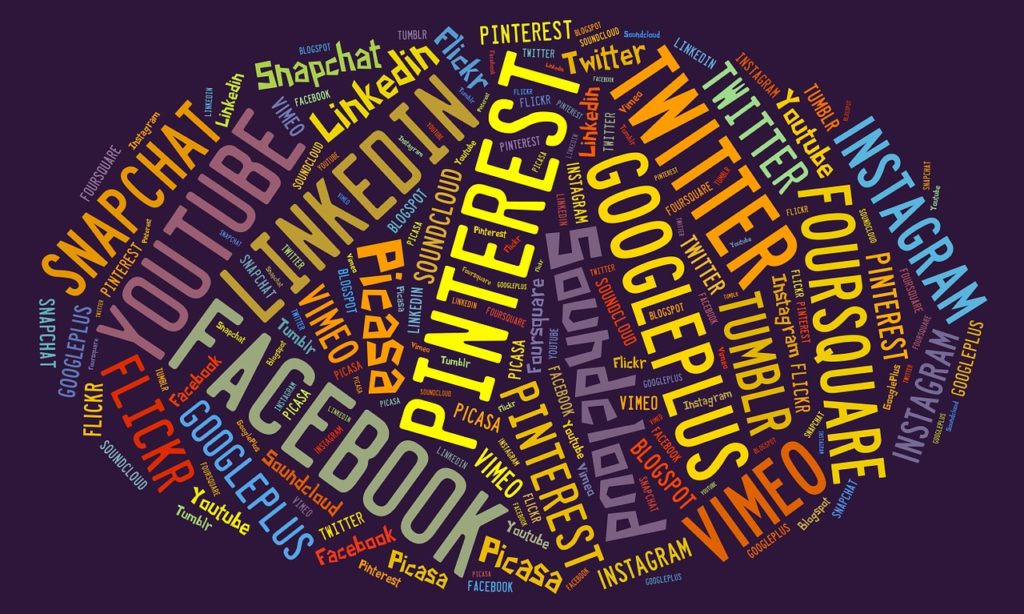- Calls to this hotline are currently being directed to Within Health, Fay or Eating Disorder Solutions
- Representatives are standing by 24/7 to help answer your questions
- All calls are confidential and HIPAA compliant
- There is no obligation or cost to call
- Eating Disorder Hope does not receive any commissions or fees dependent upon which provider you select
- Additional treatment providers are located on our directory or samhsa.gov
How Social Media Influences Body Image & Eating Disorders

Contributor: Staff at Eating Disorder Solutions
The average internet user spends a total of 2 hours and 22 minutes per day on social media, with most of this time being spent on major social media apps such as Facebook, Instagram, Snapchat, etc. [1]. It is no wonder social media influences body image and/or eating disorders.
One study aptly summarizes, “it is a highly visual environment in which appearance ideals and the pursuit of thinness are promoted. The interactive nature…provides boundless opportunities for appearance comparisons and appearance-related interactions with peers… (and) appears to contribute to increases in disordered eating [2].”
Studies have also found that social media use is connected to decreased life satisfaction [3].
As author and eating disorder advocate Claire Mysko perfectly describes, “While social media is not the cause of low self-esteem, it has all the right elements to contribute to it. Social media creates an environment where disordered thoughts and behaviors really thrive [4].”
Social Media Influences Body Image by Idealized-Appearance Focus
One of the biggest aspects that contribute to social media’s impact on body image and disordered eating is the focus on idealized appearances. The “highlight reel” culture of these apps means that everyone’s lives appear to be filled with happiness, joy, victory, and fulfillment all the time.
This is also true visually, where any perceived flaw can be edited out with a photoshop app or a filter to ensure that the bright and sunny lifestyle is matched with a visual appearance of “perfection.”
The issue here first becomes that all individuals that partake in this are hyper-aware of, and catering to, societal ideals of what is worthy and desirable. Photoshop does not allow someone to add on weight or pimples or wrinkles or put in stains on clothing.
The message sent regarding this is concerning – that these features are undesirable in our society, at the least making an individual unworthy of “likes” and, even worse, implying that these features also make someone less worthy of love, joy, or acceptance.
Social Media, Adolescents, Body Image
The impact that curated perfection has on adolescents is frightening, as they are especially impressionable to societal messages of what makes someone worthy or attractive.
At this age, peer competition plays a large role in body image, self-worth, and identity.
One study found that social media use predicts increased peer competition, implying that not only does social media alter adolescent’s understandings of reality, but, they also increase social comparison and competitiveness with one another [3].
Media Literacy
 Media literacy is incredibly important as both adults and adolescents alike are increasing their social media use with possibly harmful results to their relationship with food and their bodies.
Media literacy is incredibly important as both adults and adolescents alike are increasing their social media use with possibly harmful results to their relationship with food and their bodies.
Media literacy aims to enhance the critical thinking and skepticism about media and increase proficiency in constructing media to reduce its persuasive influence [2].”
Essentially, we want to make sure that people understand they are looking at something constructed when perusing social media so that they don’t internalize this false sense of reality.
Research indicates that increased levels of media literacy are related to less internalization of diet culture ideals.
The ideal solution is for our culture to shift in such a way that we don’t learn to accept the fake perfection of social media. Instead, make social media an environment that embraces real portrayals of life, bodies, love, food, and environments.
Ask yourself how you may be contributing to or feel trapped by the “highlight reel” culture. Explore your own relationship with social media to learn how you could begin to be the change.
Resources:
[1] Salim, S. (2019). How much time do you spend on social media? Research says 142 minutes per day. Digital Information World. Retrieved from https://www.digitalinformationworld.com/2019/01/how-much-time-do-people-spend-social-media-infographic.html. [2] McLean, S. A. et al. (2017). A pilot evaluation of social media literacy intervention to reduce risk factors for eating disorders. International Journal of Eating Disorders, 50, 847-851. [3] Ferguson, C. J. (2014). Concurrent and prospective analyses of peer, television, and social media influences on body dissatisfaction, eating disorder symptoms, and life satisfaction of adolescent girls. Journal of Youth & Adolescence, 43:1. [4] Weiner, J. (2016). Positive body confidence: how social media can affect body image. Retrieved from https://www.dove.com/us/en/dove-self-esteem-project/help-for-parents/talking-about-appearance/positive-body-confidence-how-social-media-can-affect-body-image.html.About Our Sponsor:
 At Eating Disorder Solutions, compassion is at the root of everything we do. We understand that eating disorders are complex, deeply rooted mental health and medical conditions which require personalized treatment for a successful recovery. By integrating behavioral health modalities and clinical interventions, we endeavor to address disordered eating at its source.
At Eating Disorder Solutions, compassion is at the root of everything we do. We understand that eating disorders are complex, deeply rooted mental health and medical conditions which require personalized treatment for a successful recovery. By integrating behavioral health modalities and clinical interventions, we endeavor to address disordered eating at its source.
 About the Author:
About the Author:
Margot Rittenhouse, MS, PLPC, NCC is a therapist who is passionate about providing mental health support to all in need and has worked with clients with substance abuse issues, eating disorders, domestic violence victims, and offenders, and severely mentally ill youth.
As a freelance writer for Eating Disorder Hope and Addiction Hope and a mentor with MentorConnect, Margot is a passionate eating disorder advocate, committed to de-stigmatizing these illnesses while showing support for those struggling through mentoring, writing, and volunteering. Margot has a Master’s of Science in Clinical Mental Health Counseling from Johns Hopkins University.
The opinions and views of our guest contributors are shared to provide a broad perspective on eating disorders. These are not necessarily the views of Eating Disorder Hope, but an effort to offer a discussion of various issues by different concerned individuals.
We at Eating Disorder Hope understand that eating disorders result from a combination of environmental and genetic factors. If you or a loved one are suffering from an eating disorder, please know that there is hope for you, and seek immediate professional help.
Published August 16, 2019, on EatingDisorderHope.com
Reviewed & Approved on August 16, 2019, by Jacquelyn Ekern MS, LPC

The EatingDisorderHope.com editorial team comprises experienced writers, editors, and medical reviewers specializing in eating disorders, treatment, and mental and behavioral health.


